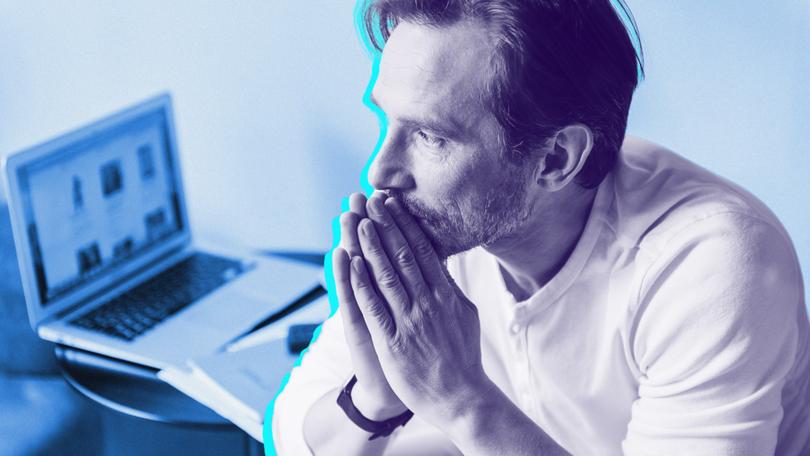JENI O’DOWD: Men victims of sexual harassment too
JENI O’DOWD: One woman I worked with would sit through meetings, slowly licking the foam off her cappuccino lid while making intense eye contact with the boss.

Here we go again. Yet another discussion about sexual harassment, and once more, men are not part of the conversation — despite nearly half a million men experiencing sexual harassment in the past year.
In 2022, Positive Duty regulations were introduced under the Sex Discrimination Act, shifting the legal onus on employers to prevent workplace sexual harassment, which has been illegal in Australia for more than 40 years.
Last week, a survey released by national violence prevention organisation Our Watch revealed that, two years later, 40 per cent of workplace leaders were unaware of the new legal duties, and nearly the same percentage of employees didn’t understand them either.
Sign up to The Nightly's newsletters.
Get the first look at the digital newspaper, curated daily stories and breaking headlines delivered to your inbox.
By continuing you agree to our Terms and Privacy Policy.I guess only in today’s hyper-woke world could something as basic as “positive duty” become law. The idea that workplaces should take proactive steps to prevent sexual harassment should be common sense, not a regulatory burden.
And yet, even with these new laws in place, it seems we’ve overlooked an entire segment of people who also deserve protection: men.
Our Watch CEO Patty Kinnersly said: “All employees should feel safe at work, and preventing workplace sexual harassment is a key safety issue, particularly for women, people of colour and LGBTIQA+ employees.”
And there it is. Yet again, men are conspicuously absent from the narrative even though nearly half a million, or 4.5 per cent of the male population aged 18 years and over, experienced sexual harassment in the 12 months before the Our Watch survey.
The Australian Human Rights Commission’s 2022 report Time for Respect indicates that 33 per cent of Australians experienced sexual harassment at work in the past five years, with women reporting higher rates (41 per cent) compared to men (26 per cent).
While the report provides comprehensive data on gender-based experiences, it does not offer specific statistics for people of colour or LGBTIQA+ individuals regarding workplace sexual harassment. So, I am not sure why these two groups are highlighted by Our Watch when men are such a large group.
The commission’s report did acknowledge that LGBTIQA+ individuals and people of colour may face higher risks of harassment, exclusion from decision-making processes, or not being given equal opportunities. But, sexual harassment was not highlighted.
I am certainly not downplaying what happens to women. There is no doubt harassment is more common for women than men or other groups.
But that does not mean men’s experiences should be ignored. Sexual harassment affects everyone, and pretending otherwise doesn’t help anyone.
I’ve seen men being sexually harassed in the workplace, and the expectation was that they should grin and bear it — or even enjoy it — because they’re men.
One woman I worked with would sit through editorial meetings, slowly licking the foam off her cappuccino lid while making intense eye contact with the male boss. He was always uncomfortable if he glanced in her direction.
Another would have conversations with her boss while kneeling beside his chair. It might have been to get on his level, but seriously, couldn’t she just pull up a chair?
And it’s not only men who make inappropriate comments about outfits or give uninvited shoulder massages. Women do it, too, unashamedly and often without fear of any repercussions.
Significantly, almost two years after the implementation of the Positive Duty law, we have zero publicly reported penalties or cases for non-compliance.
How is a business even expected to stop sexual harassment entirely? Ban Christmas parties with alcohol? Police casual conversations? Prevent someone from ever complimenting a colleague on their outfit?
To help prevent sexual harassment in the workplace, businesses can implement zero-tolerance policies, regularly train staff, create safe and confidential reporting mechanisms and foster a culture of respect led by management.
However, the key word here is prevent. No one can stop a person from making a bad decision, blurting out an inappropriate comment, or acting impulsively, especially when alcohol is involved.
In a world where we allow kids to identify as cats in schools, men to compete in women’s sports, and where every disagreement risks being framed as a gender issue, you’d have to be Blind Freddy not to know that sexual harassment is unacceptable in the workplace.
Do employers really need a law to tell them that?
Common sense and mutual respect shouldn’t require a law. Passing legislation might feel like progress, but the reality — zero legal cases and widespread confusion — speaks volumes.
Instead of sinking public funds into feel-good but ineffective laws, shouldn’t we focus on genuinely pressing issues like domestic violence? (And yes, that includes male victims, too.)
If we want to truly address harassment, we need to acknowledge that it’s not just a women’s issue. It’s an issue that affects us all.
